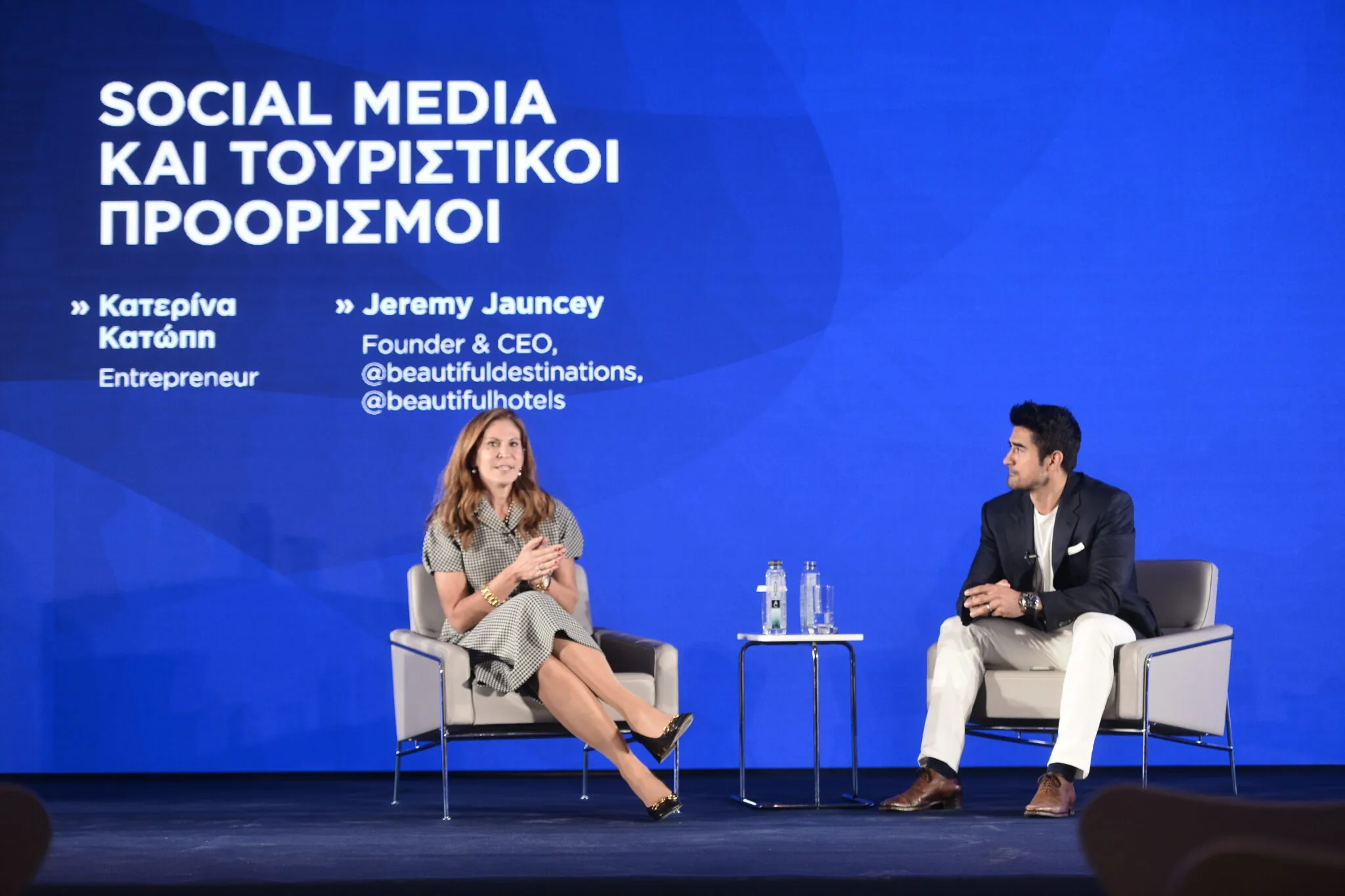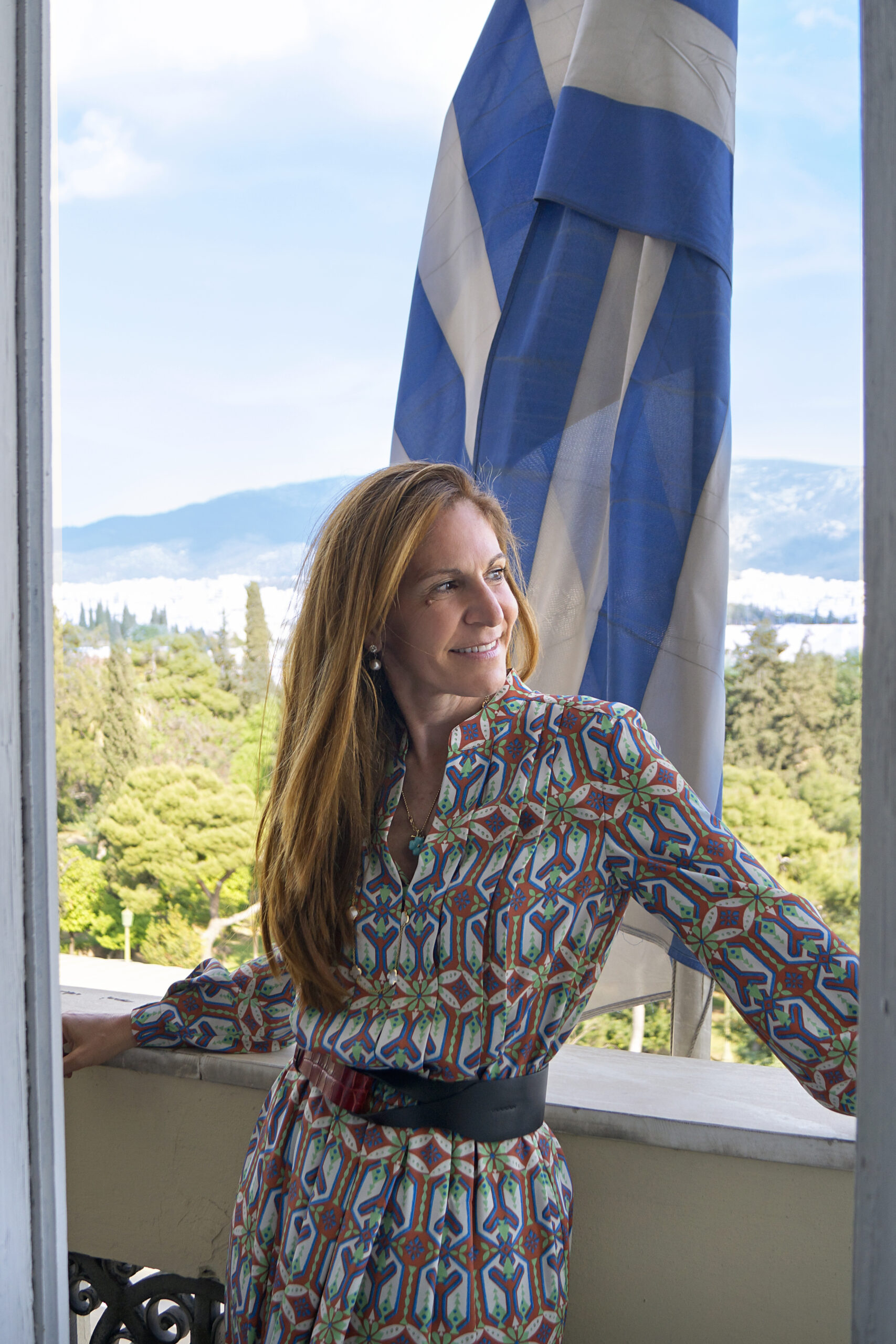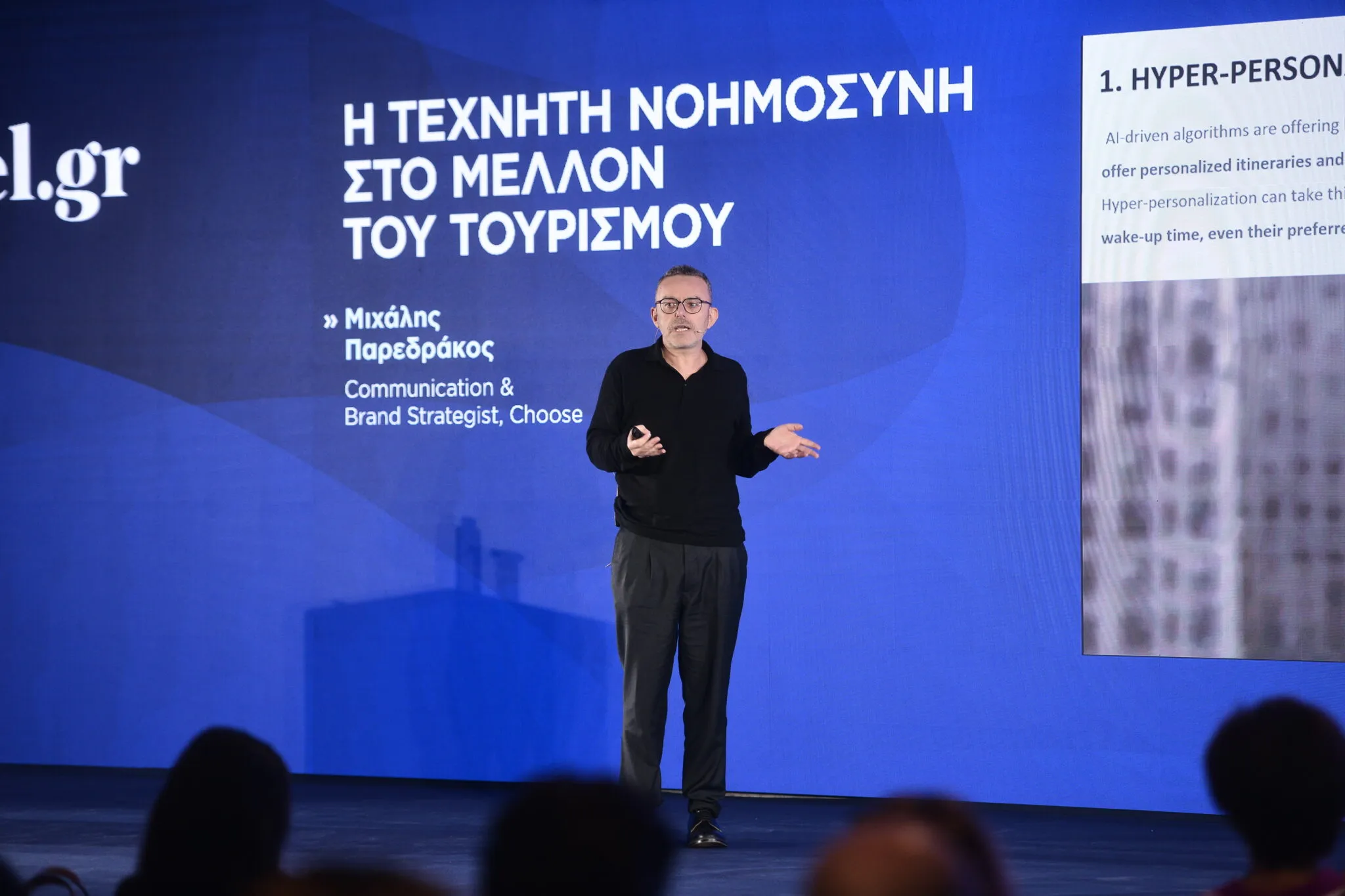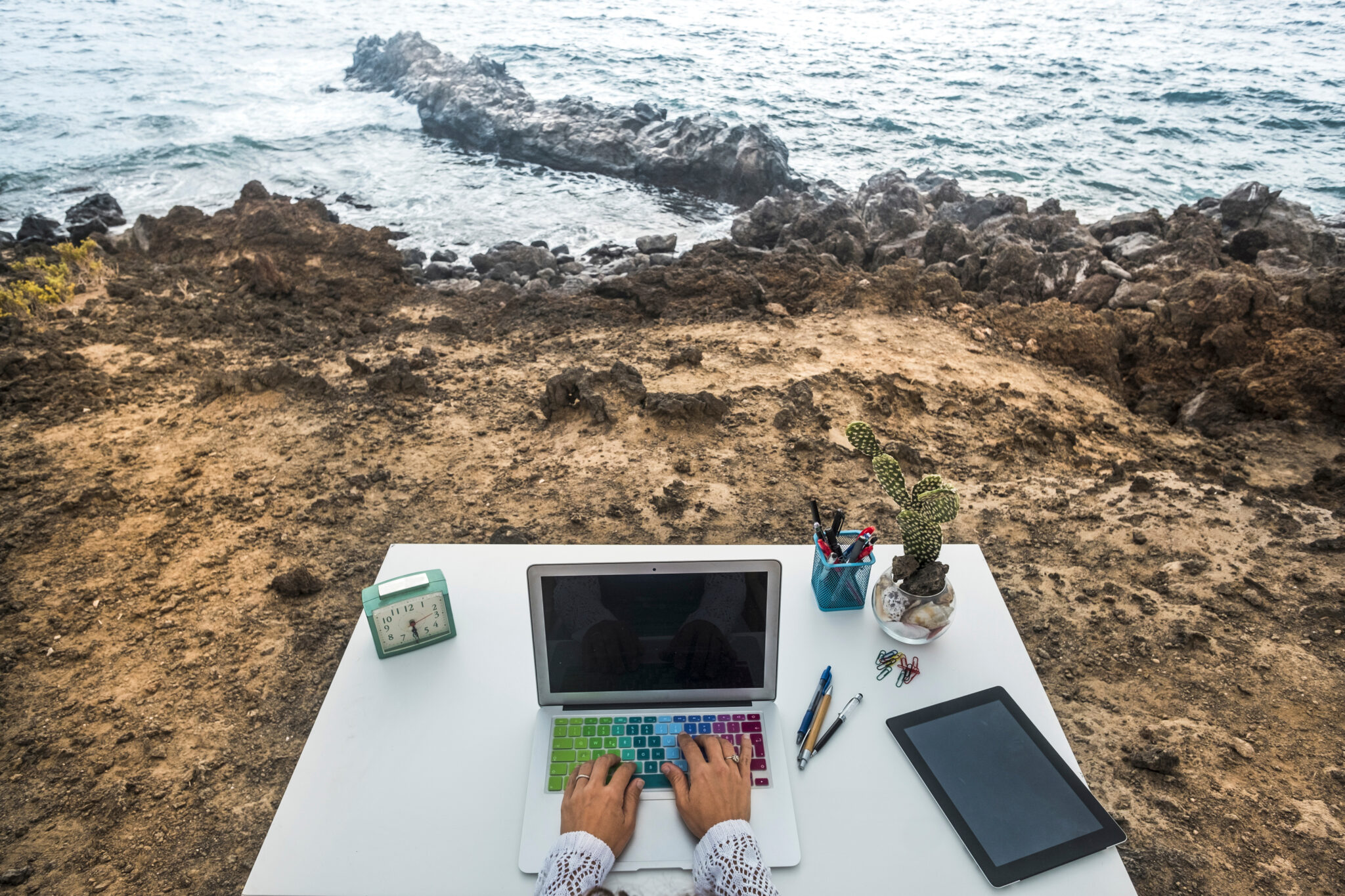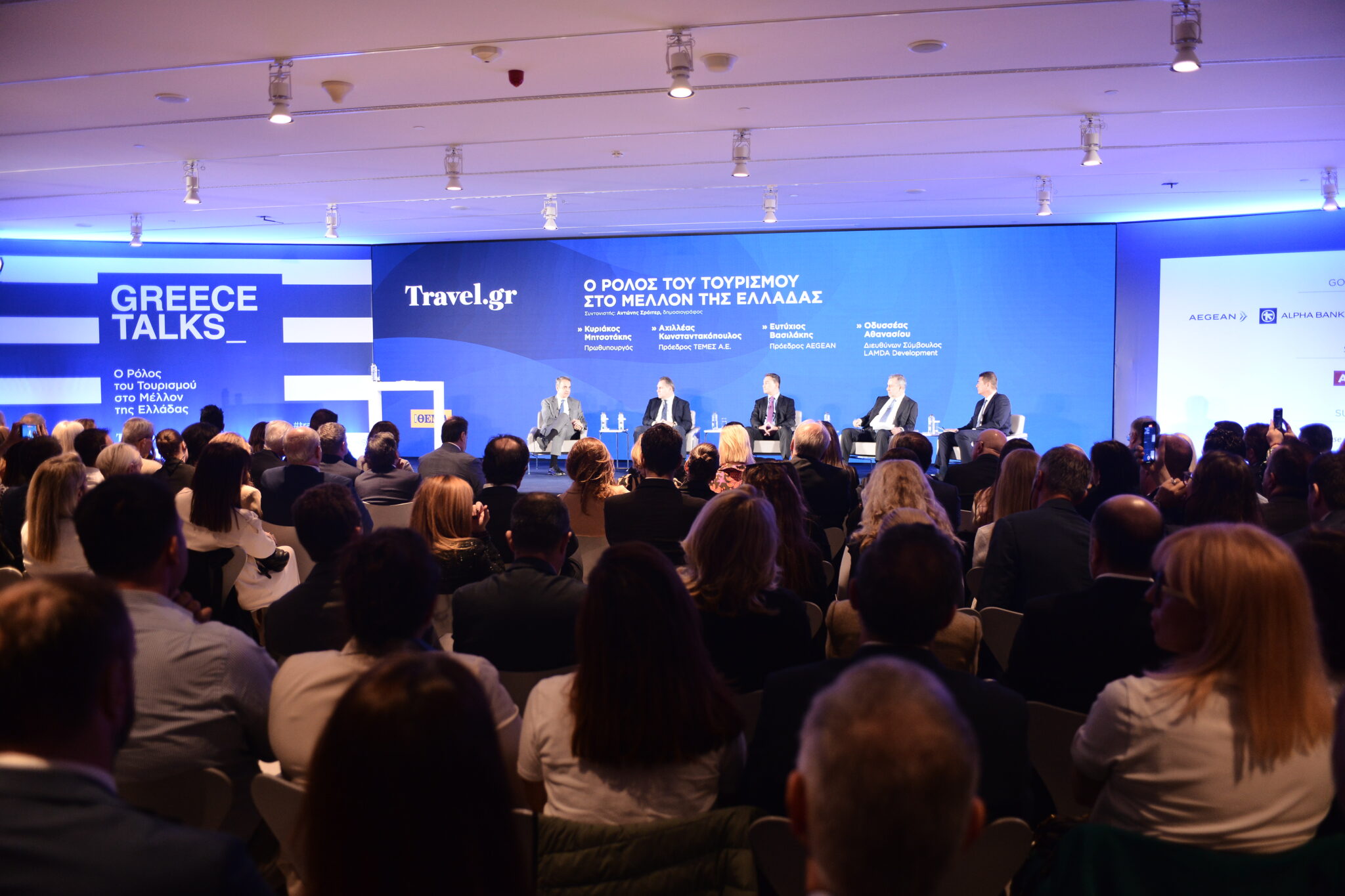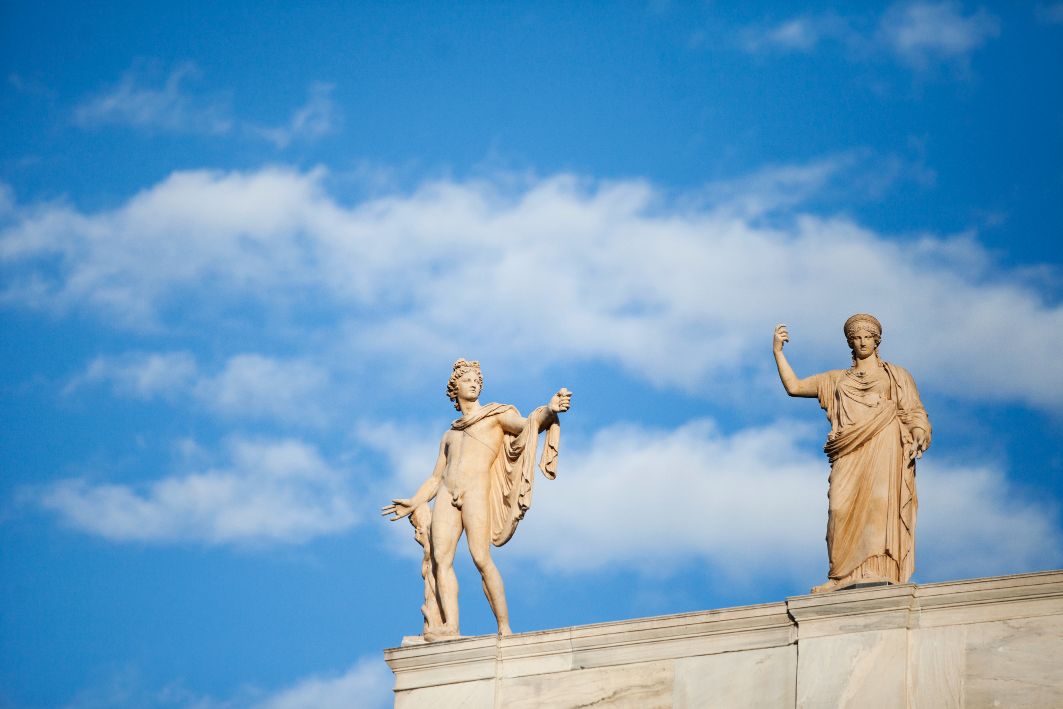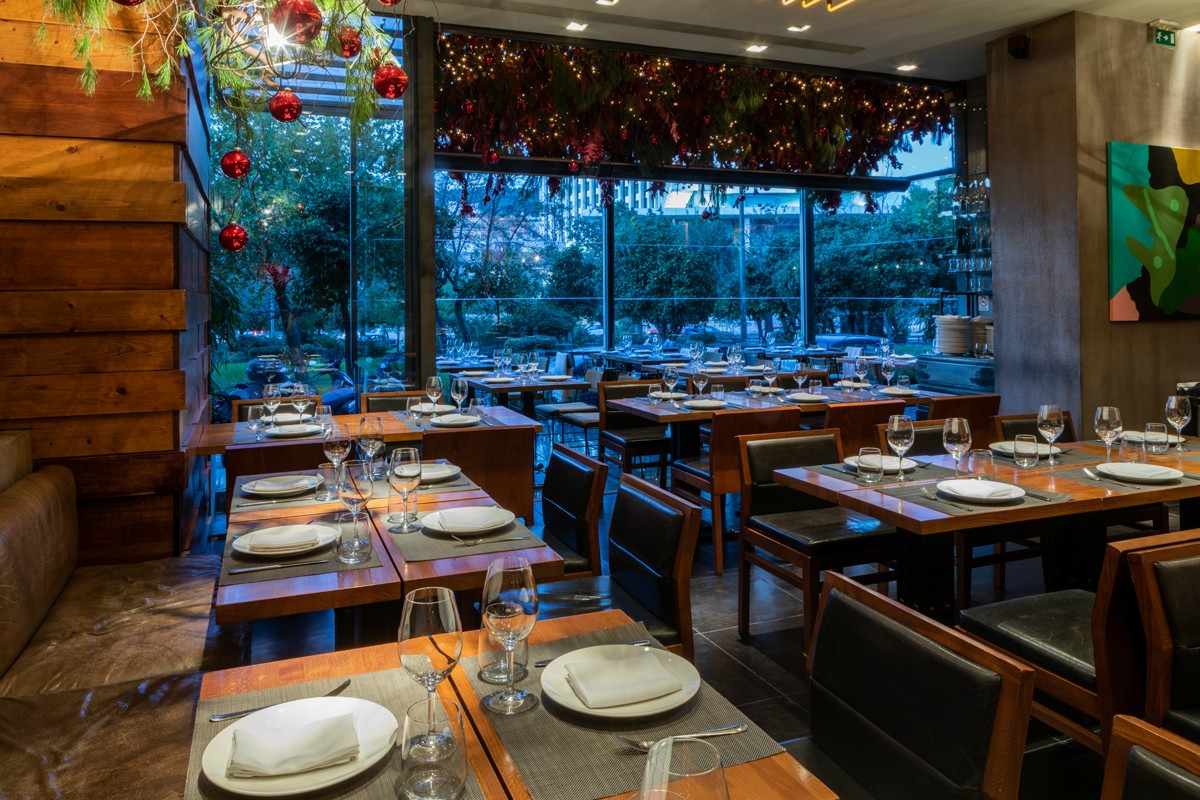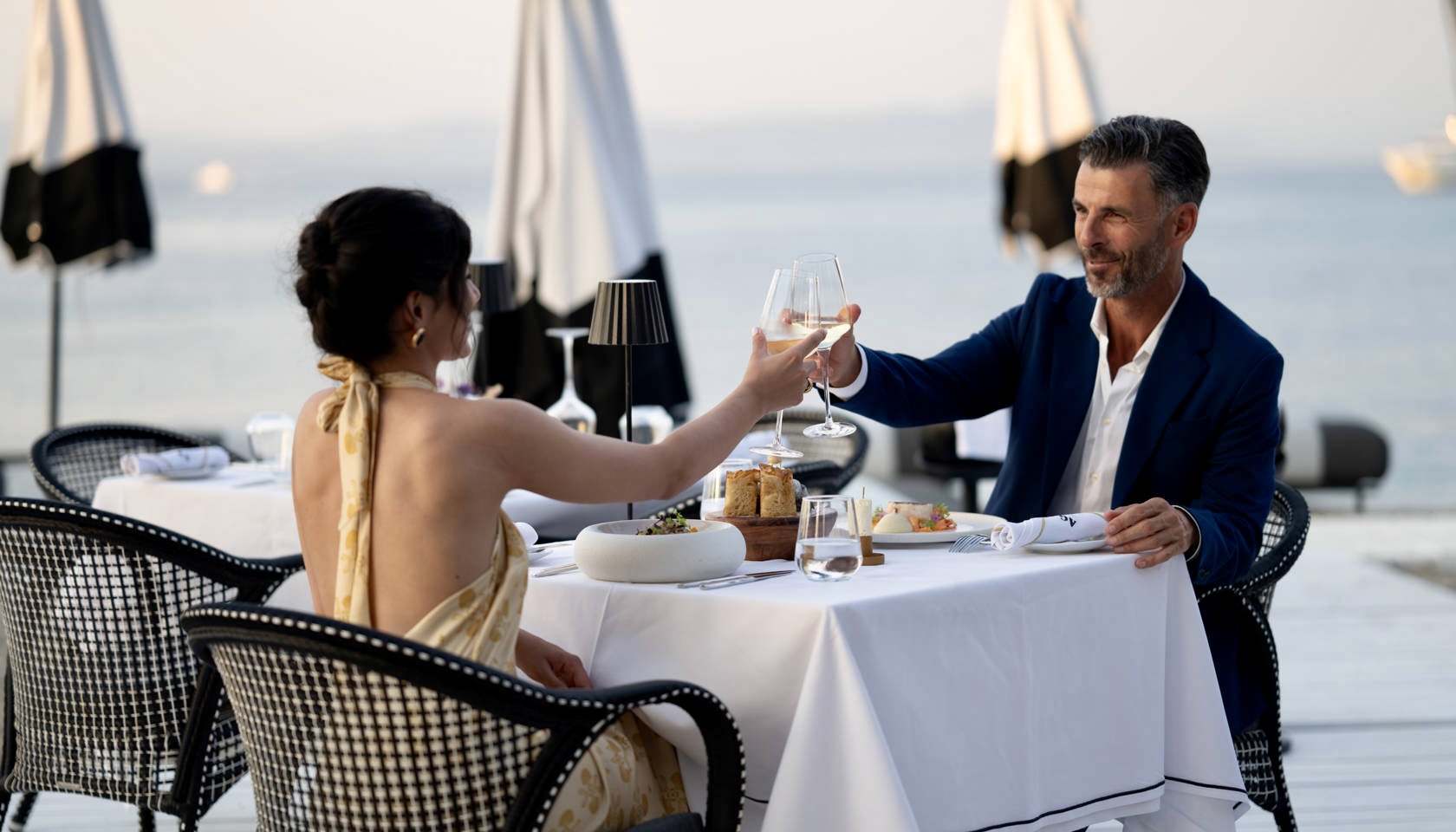The evolution of social media over the last decade and the already growing use of more newly introduced AI are both vital components for representing and promoting practically everything from businesses, organisations and personalities to cultural, gastronomic, design, corporate and political platforms. What we, as a global community have by now realised is that in order for us to acknowledge, understand and personally experience – from near and far – most things that exist in our world, we must increasingly rely on these new technologies.
When it comes to tourism and travel, countries are now marketing their attributes just as consumer brands do, presenting their multifaceted identities, and both social media and AI are proving vital tools for doing so effectively and successfully. This theme was the topic of a talk at the recent Greece Talks Conference organised by Travel.gr, an all-day event that welcomed major personalities from different fields – from the Greek state to private enterprises. The panel featured entrepreneur and communications professional Katerina Katopis who spoke with Jeremy Jauncey, founder and CEO of the hugely popular social media accounts @beautifuldestinations and @beautifulhotels, who discussed their experiences and outlooks in relation to Greek tourism. Meanwhile Michael Paredrakos, Communication and Brand Strategist at Choose, one of the largest communication companies in Greece, gave a talk on how AI is shaping global travel today and in the very near future.
Jauncey began by talking about Beautiful Destinations, his successful brand that began as a simple social media account and has by today evolved into a platform with 1.5 million followers that has made him a key strategic advisor for large hotel groups, airlines, and even state and local authorities wanting to showcase their places as tourist destinations. “People are now spending more time on their mobile phones than anywhere else,” he said. “This creates a potential for state bodies or hotels to attract customers, and we have teams trying to help them create short and attractive content. This content has changed a lot, especially in the post pandemic era. Initially, Instagram was just a platform for sharing photos – with no videos or stories and interaction capabilities. Today, 40% of young consumers don’t use Google Search or Google Maps to find out where and how to travel. They turn to Instagram or TikTok to watch and learn from short, vertical videos. If you don’t have such videos, I would advise you to make them immediately to attract new consumers.”
“What social media have managed to do is democratize content,” Jauncey continued. “You don’t need to spend a lot of money or be an established brand to create good content – consumers will find you. We work with many hoteliers who don’t have huge financial resources but gain an audience this exact way.”
Jauncey also touched upon Artificial Intelligence and how it can change the way we search for information on our travel destinations. “In two weeks, we will be releasing our first AI product, a consumer-focused app that will aim to make life easier for travellers, tapping into modern needs. By now, most of us, when we look up places to travel to, look through social media and various sites to book rooms, and tickets, compare prices, etc. So, we thought it would be good to incorporate an AI product into our social media. Called Layla, who is like your best friend’s older sister. She is smart, funny, has travelled more than us, speaks Greek as well as every other language, and the idea is that by communicating with her you can quickly do everything you want to plan your trip, without going from site to site.”
Katopis, who has also worked as an advisor to major projects related to tourism, and in Greece was behind the creation of Amanzoe, a unique concept at the time, says, “Greece is one of the most popular places as a destination on social media. But at the same time, this basically pertains to three to four destinations such as – of course – Santorini. However, there are so many other places that could be showcased. Some very popular places are now highly saturated, while others have not been highlighted as much as they should. For example, Milos attracts people from all over the world who see photos of Sarakiniko, when many other parts of it could also be showcased.”
“Some influencers came just to take photos and nothing else,” she continued. “I also believe that the number of followers, the audience, is not decisive on its own. Even if the audience is not so large, if it consists of significant people, that’s often good enough,” she said. Addressing Jauncey, with whom she has collaborated and travelled extensively in the past, Katopis also mentioned that she would like to see him work in Greece, “not just for individual hotels but for the whole country. It would be nice to have a clearer strategic approach and collaboration with state bodies.”
Speaking about the phenomenon of hypertourism, Katopis lamented that in places like Santorini, “we see 10 cruise ships a day and because of this, many people living on the island cannot enjoy it. We need to find more sustainable ways. Perhaps charging an entrance fee, like they do in Bhutan would be an idea. What is certain is that we must preserve what we have because it is special.”
Katopis also referred to the improvement of the Greek tourism product. “When we started building Amanzoe amidst the crisis, everyone thought we were crazy. However, it brought a different type of clientele to Greece, along with other hotels. A new kind of tourism was born, and now, more and more big brands are coming to Greece. The season has been extended. I think this is wonderful as it means more job opportunities, a longer season, and more money for local producers. This new affluent clientele wants to spend money, wants to participate in authentic agricultural activities like olive harvesting and wine making.” She concluded by saying she believes that “travel is becoming more focused on the experience and participation in local activities, and this is wonderful.”
Michael Paredrakos on AI: Rapid Development, Fast Change
Michael Paredrakos, a leading brand & communication strategy consultant and founder of thecuriousbrain.com, with over 3.6 million monthly viewers, spoke at Travel.gr’s Greek Talks conference about the future of Greek tourism and the ways in which the rapid development of artificial intelligence (AI) looks like it is radically changing the way we live and travel in Greece and internationally.
Discussing the most advanced trends which he and his team believe will dramatically reshape tourism in the coming years, Paredrakos revealed: “Hyper-personalisation through AI is going to change things dramatically. Essentially, there will be guides that you’ll tell ‘I want to go to a beach with white pebbles’ and it’ll send you there; it will know the music you like and send you to a corresponding bar, hotels will know the temperature you prefer in your room, what foods you love, even the cosmetics you want to use in the bathroom. So, we are talking about a more upper-class service in all hotels.”
Paredrakos continued: “The next strong trend is AI Automation. For example, the airline Delta allows us to do check-in with facial recognition. And not only that, but they have installed panels in the airport that talk to us, giving information about our flight. The communications expert also discussed the significant advancement of chatbots in the era of rapidly rising artificial intelligence, a development that can save a lot of operational costs for large companies. He touched on the ultra-modern functionality of AI Robots/Voice Assistants, which can either clean rooms or airports or transport food or even our luggage. As Paredrakos said, “This is the point where we will see a major revolution in the coming years.” Finally, he mentioned the very latest trend in the universe of artificial intelligence called AI Emotion Detection, which can analyse the emotions of a traveller through their facial expressions, body language, and personal social media posts, thus transforming a negative travel experience into a positive one.
Through extensive research conducted by Choose among a large sample of travellers in Europe and America, Paredrakos managed to demonstrate, with data presented in his talk, what a crucial role artificial intelligence already plays in global tourism. Specifically, the research showed that 65% of travellers are already somewhat familiar with AI functions, while 19% were very familiar with AI services. The same survey also provided answers regarding the greatest challeges visitors face on a trip abroad, with 48% indicating the foreign language as the biggest problem and 18% finding affordable hotels and activities.
In concluding his speech, Paredrakos presented a Choose project for western Greece, which allows travellers to pose questions in an app about issues they may have during their trip, offering all the answers they seek about the area they are visiting. Notably, as he underlined, the voice heard in the application is not a human voice but a product of artificial intelligence. This impressive experience can prove to be truly valuable and helpful, reflecting all that AI is set to bring into our lives in the coming years in tourism and beyond.




